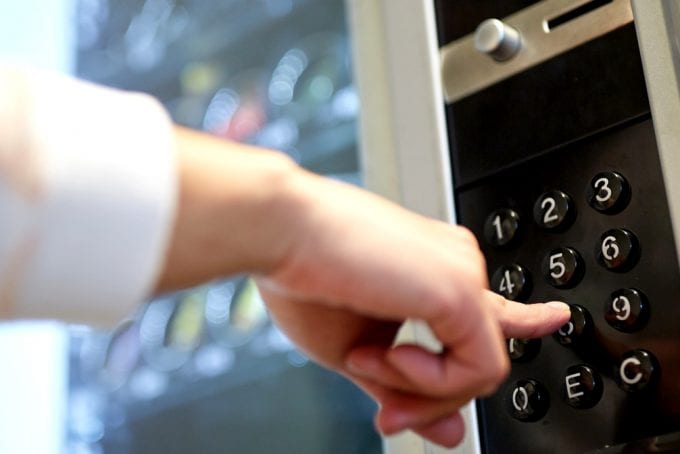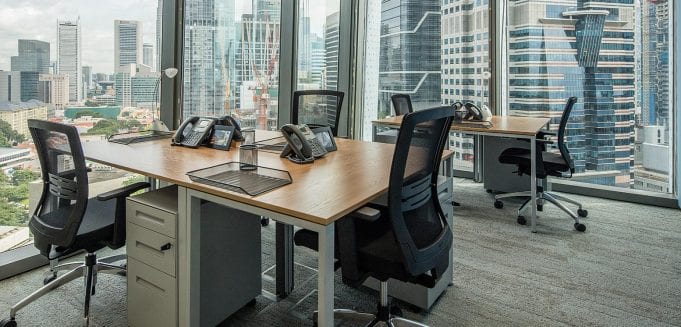Running an office is an expensive necessity for many businesses, but in many cases, these workplaces are running inefficiently and wasting money.
Trying to save money around your office is never a bad thing. No matter how much you think you might be saving, there is always an opportunity for you to save some extra money.
Here are some of the best cost-effective measures you can use to improve your office.
Software Solutions

There are plenty of software solutions out there that could help you out around the office. Your staff might have several menial tasks that take up valuable time in their day.
Instead of looking after these tasks, you could invest in some key pieces of software. These programs like BTC software will help your employees instead do the tasks they were hired for.
Programs like this are convenient and help you to know that important aspects of running your business are being taken of. If an employee is not trained in a specific area, there is always the chance that errors will be made.
Such errors might end up becoming quite costly. With the right software, you can be certain that these tasks can be taken care of properly the first time they are handled, no matter who might be in control of them.
Bring Office Cleaning In-House
Many offices hire external cleaners just to do basic tasks such as dusting, emptying the wastepaper basket and wiping down surfaces. Instead of hiring an expensive outsourced team to do these tasks, why not ask your existing staff to do it?
After all, in a small office the cleaning often isn’t a big job. It might only need to be cleaned once a week, meaning that team members could split the tasks and do them quickly and efficiently before they leave for the weekend.
You could create a cleaning rota to ensure that every member of the team plays their part in keeping your office clean and tidy.
Ditch the Extras

Do your employees really need a coffee machine? While incentives around the workplace are a fantastic idea, you need to know how to balance them correctly. For example, having a coffee machine that requires pods will eventually become very expensive. The cost of the pods will begin to add up, especially if you have an office of heavy coffee drinkers.
It is always wise to have some sort of amenities present so you are able to serve visitors or clients if necessary. However, having them just around the office for anyone to use could open them to abuse from employees.
Have a collaborative meeting with your employees so you can come up with a new solution together. This might be a better option than trying to work out something on your own.
Consider Remote Working

Whilst some offices still require staff to work in-house, thanks to technological advances most roles can be completed remotely.
Introducing remote working policies will not only save your business money on electricity and equipment but also improve employee wellbeing and work-life balance. As such, your firm should consider offering remote working for some of its employees.
If you’re unsure about taking the leap and allowing a number of staff to work remotely all the time, you could consider offering flexible working hours, where team members are allowed to work from home for several days a week, then have to come into the office on other working days. This approach will save your firm money and allow you to keep your office culture as collaborative as it ever was.
Get Rid Of Vending Machines

As well as coffee machines, your firm should defiantly ditch the vending machine. Vending machines that sell snacks and drinks use a lot of electricity to keep items cold and run their operating systems, and often the business using the machine ends up paying for this.
Depending on the payment method you have for your vending machine, your firm may end up paying monthly rent for the machine or paying a small fee for every item purchased from it.
Taking away vending machines will not only save your business money, but also encourage staff to reduce their intake of sugary treats or get up and go for a walk to fetch them. This will improve their physical and mental wellbeing, making them more productive.
Go Paperless

If your office generates a lot of printed materials, you might want to look into some of the benefits of going paperless. Going paperless might have some major rewards but it will require some careful transitioning in the office.
Many people will often forget about new office initiatives and they might keep printing things at the start.
However, should you manage to go paperless, the benefits will soon become obvious. Firstly, you will be able to cut down on the amount of paper and ink you are buying in the office. As the printers are not being used as often, you will be able to reap a small savings that could be fed back into a more worthy part of the business.
Secondly, a paperless office is a productive office. Too much paper can cause far too much clutter. Your employees might struggle to focus with too much clutter on their desks. By going paperless, they can focus on streamlining their individual workspaces; leading to a happier working environment for all.
These are just some of the changes you could make if you want to cut back on costs in your office. So often it is not any major changes you need to make. By assessing some of the smaller practices like the over-consumption of office extras, you can easily find some places where you can cut back and make some savings.
Make sure your employees are involved in the entire discussion. The more they can be involved with planning and changes, the more likely they will be to take them on board and implement them successfully.









